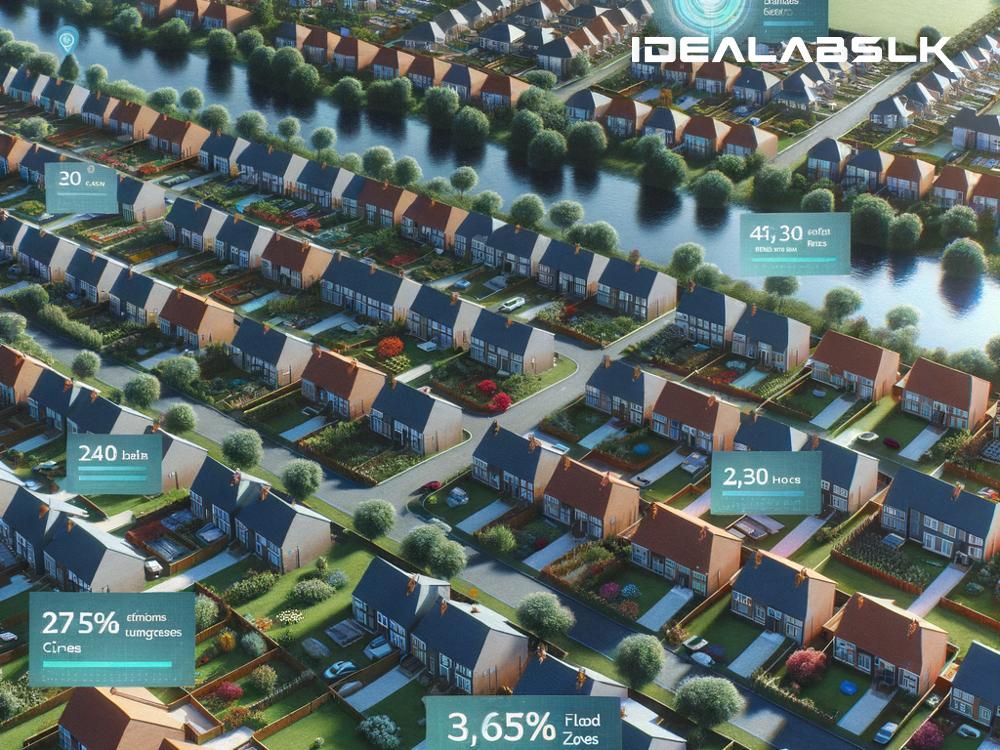AI for Real Estate Investors: Identifying High-Risk Properties
In the ever-evolving world of real estate, staying ahead of the curve is crucial for investors. It's about knowing which properties will be a goldmine and which ones could potentially drain your pockets. This is where Artificial Intelligence (AI) comes into play, transforming the way investors identify high-risk properties.
Understanding High-Risk Properties
Before we dive into how AI is changing the game, let’s unpack what we mean by "high-risk properties." These are properties that, for various reasons, might not give you the return on investment (ROI) you’re hoping for. It could be because of their location, condition, market trends, or even legal issues. Identifying these properties is crucial to making informed investment decisions. But how can one navigate through such a complex landscape? That's where AI shines.
The AI Advantage in Real Estate
Artificial Intelligence, in simple terms, is like having a super-powered assistant who can analyze vast amounts of data, spot trends, and make predictions faster than any human ever could. For real estate investors, this technology is nothing short of revolutionary. Here's how AI is helping to pinpoint high-risk properties:
1. Deep Dive into Data
AI systems can process and analyze data from various sources, including market trends, property values, historical data, and even social media, to gauge public sentiment about a neighborhood. This deep dive gives investors a comprehensive understanding of a property's potential risks and rewards.
2. Predictive Analysis
One of AI's standout features is its ability to predict future trends. By analyzing past and current data, AI can forecast changes in property values, neighborhood development, and market demand. This predictive power enables investors to make proactive decisions, steering clear of investments that are likely to underperform.
3. Automated Property Screening
Sifting through property listings to find investment-worthy options can be like finding a needle in a haystack. AI simplifies this by automatically screening properties based on predefined criteria, such as price range, location, and features. This not only saves time but also ensures that you're only considering properties that match your investment strategy.
4. Risk Assessment Models
AI can evaluate the risk associated with a property by considering various factors, including environmental risks, such as flood or earthquake zones, and financial risks, such as fluctuating interest rates. These models provide investors with a risk score, helping them make informed decisions about whether to proceed with an investment.
5. Legal and Compliance Checks
Investing in a property that’s entangled in legal issues can be a nightmare. AI-powered tools can scour public records and legal databases to identify any potential legal concerns, from property disputes to zoning issues. This ensures you're aware of any legal risks before taking the plunge.
Real-Life Application
Imagine you're eyeing a charming property in what seems to be an up-and-coming neighborhood. Instead of relying solely on your gut feeling, you use an AI tool to analyze the property. The tool examines data points from various sources and reveals that while the area has potential, it's prone to flooding, and recent social media sentiment about the neighborhood is negative. Armed with this information, you decide to pass on this investment, saving yourself from potential financial loss.
The Human Element
While AI is a powerful tool, it’s important to remember that it complements, rather than replaces, the human touch in real estate investing. An experienced investor’s intuition and expertise combined with AI’s analytical prowess make for a formidable team.
Looking Ahead
As AI technology continues to evolve, its role in real estate investing is set to grow even more prominent. From more sophisticated predictive models to real-time data analysis, the future of real estate investing is bright for those ready to embrace AI.
Conclusion
For real estate investors, identifying high-risk properties is a critical step toward success. With Artificial Intelligence, the process of finding these properties has become more precise, efficient, and data-driven. By leveraging AI, investors can navigate the complex landscape of real estate with greater confidence, ultimately leading to smarter investment choices. As we look to the future, it's clear that AI will continue to play a pivotal role in shaping the real estate investment landscape. Now is the time to harness the power of AI and turn potential risks into rewarding investments.

